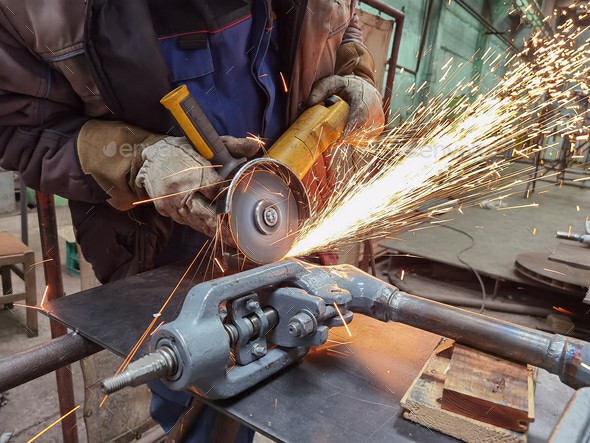Choosing the Right Training: Online vs. In-Person Abrasive Wheels Courses in Ireland
Abrasive Wheels training is a vital subject for anyone working in environments where cutting and grinding tools are in use. In Ireland, particularly in cities like Dublin, Cork, Galway, Limerick, Waterford, and others, the options for learning can be overwhelming. Choosing between online and in-person training requires careful consideration of your specific needs and job role. This article will delve into each training format's effectiveness, certification validity, and learning outcomes, helping you make an informed decision.
The Importance of Abrasive Wheels Training
Understanding how to safely operate abrasive wheels is crucial for preventing workplace accidents. Proper training not only ensures compliance with safety regulations but also enhances productivity and skill levels.
Online Abrasive Wheels Training
Advantages
- Flexibility: Online courses allow learners to access materials whenever and wherever they choose, making it easier to fit training into busy schedules.
- Cost-Effective: Online training often comes at a lower price point compared to in-person sessions, eliminating travel costs.
- Accessibility: This format is especially beneficial for those in remote areas or with mobility challenges.
Disadvantages
- Lack of Hands-On Experience: Online training may not provide the practical experience needed to handle abrasive wheels safely.
- Self-Discipline Required: Learners must possess self-motivation and time management skills to complete the course effectively.
In-Person Abrasive Wheels Training
Advantages
- Hands-on Learning: Trainees gain immediate experience handling abrasive wheels under professional supervision, enhancing confidence and competence.
- Immediate Feedback: Instructors can provide real-time feedback, allowing learners to correct mistakes on the spot.
- Networking Opportunities: Participants can connect with industry peers, fostering a sense of community and shared learning.
Disadvantages
- Limited Schedule Flexibility: In-person classes are often scheduled, which can be inconvenient for some learners.
- Higher Costs: These courses may involve higher fees due to instructor time and venue rentals.
Effectiveness and Learning Outcomes
Research shows that blended learning approaches, combining online and in-person elements, can lead to the best retention rates and skill development. Online courses can be effective if they include interactive components, while in-person training excels in imparting practical skills.
Certification Validity
Both online and in-person courses can result in valid certifications. However, it's essential to ensure that the course you select is accredited and recognized within your industry. For example:
- Abrasive Wheels Certification Ireland: Ensure that your training provider meets the necessary criteria for accreditation in Ireland.
- Certified Abrasive Wheels Training: Look for official certifications that demonstrate both theoretical knowledge and practical competence.
Recommendations Based on Job Roles and Industries
- Construction Workers: In-person training is recommended for essential hands-on experience with cutting tools.
- Factory Employees: Online or blended formats can work well, depending on existing skill levels.
- Safety Officers: A combination of both formats may provide a comprehensive understanding of compliance and safety protocols.
Conclusion
Ultimately, the choice between online and in-person Abrasive Wheels training depends on your specific needs, learning preferences, and industry requirements. When deciding, consider flexibility, cost, the importance of hands-on experience, and the nature of your job role.
For effective Abrasive Wheels training courses in Dublin, Cork, Galway, Limerick, Waterford, and other key locations, don't hesitate to reach out to us at [email protected] and visit our website for more details.



 349,500 Offered Certificates
349,500 Offered Certificates
 24/7 Online Training
24/7 Online Training
 Money Back Guarantee
Money Back Guarantee
 Fully Accredited Courses
Fully Accredited Courses
